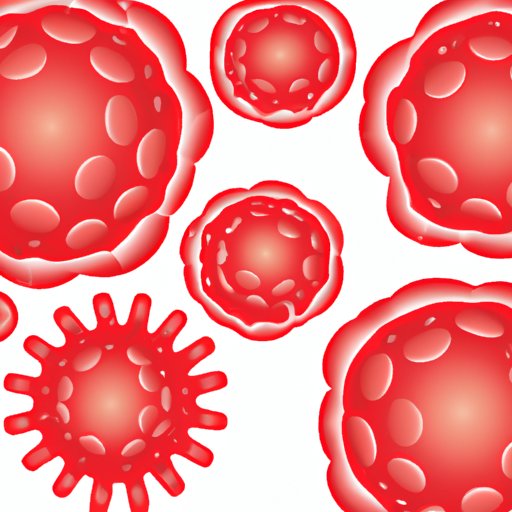
Introduction
Red blood cells, or RBCs, are an essential component of our blood. They contain hemoglobin, which carries oxygen to various parts of our body. Without enough red blood cells, our body will not receive enough oxygen, leading to fatigue and other complications. This article aims to provide natural methods to increase red blood cell production and maintain a healthy RBC count.
Proper Diet
A proper diet is crucial for red blood cell production, as certain nutrients are required for RBC formation. Iron, folate, and vitamin B12 are necessary for RBC production. Foods that are high in iron include red meat, spinach, broccoli, and lentils. Folate-rich foods include leafy greens, beans, and citrus fruits. Vitamin B12 can be found in meat, fish, eggs, and dairy products. Incorporating these foods into your diet can help increase red blood cell production.
A sample meal plan can include spinach and cheese omelets for breakfast, lentil soup for lunch, and grilled chicken with broccoli for dinner. Snacks can include fruits, nuts, and roasted chickpeas.
Exercise Regularly
Regular aerobic exercise can stimulate red blood cell production. Exercises that increase heart rate and elevate breathing, such as running, cycling, and swimming, can be especially effective in enhancing RBC count.
Exercise can increase the production of erythropoietin, a hormone that triggers the production of red blood cells. A sample workout routine can include cycling for 30 minutes, jogging for 20 minutes, and swimming for 20 minutes, three times a week.
Get Enough Sleep
Adequate sleep is essential for the production of red blood cells. During sleep, our body produces and releases erythropoietin, which stimulates RBC production.
Lack of sleep can impair the production and release of erythropoietin, leading to decreased RBC count. It is recommended to get 7-8 hours of sleep daily. Ways to improve sleep quality include avoiding caffeine and electronic devices before bedtime, maintaining a consistent sleep schedule, and creating a calming bedtime routine.
Stay Hydrated
Water is necessary for red blood cell production. It helps to transport the nutrients required for RBC production to the bone marrow, where RBCs are formed.
Dehydration can lead to thickening of the blood, making it difficult for RBCs to move through blood vessels. Drinking at least eight glasses of water daily and consuming hydrating foods like watermelon and cucumber can help maintain optimal hydration.
Consult a Doctor
If natural methods fail to increase red blood cell count, it is essential to consult a doctor. A low RBC count can indicate underlying medical conditions like anemia, vitamin deficiencies, or kidney disease.
Medical treatments for low RBC count include blood transfusions, erythropoietin injections, and bone marrow stimulation. It is essential to discuss the risks and benefits of each treatment with the doctor before proceeding.
Conclusion
Increasing red blood cell count naturally is achievable through proper diet, regular exercise, adequate sleep, and hydration. However, if the RBC count remains low despite these natural methods, seeking medical treatment is essential. Maintaining a healthy lifestyle is crucial for optimal RBC production and overall well-being.





